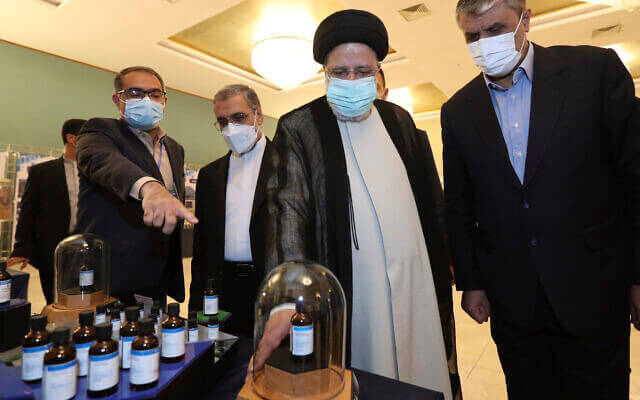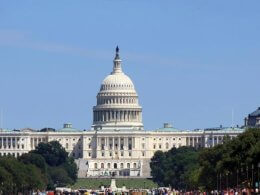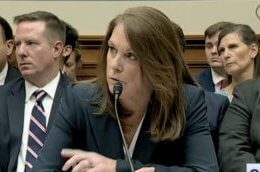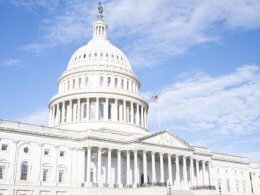The US said Tuesday that Iran’s nuclear breakout time was down to weeks, and blamed the previous administration, as negotiations between Tehran and world powers continued to stall.
“Their breakout period is down from about a year, which is what we knew it was during the deal, to just a few weeks or less,” White House Press Secretary Jen Psaki said at a press conference, referring to the 2015 nuclear deal between Iran and world powers.
US Secretary of State Antony Blinken said Iran’s breakout time was “down to a matter of weeks.”
The Biden administration has issued similar warnings about Iran’s nuclear breakout time in the past.
The breakout period refers to the amount of time it will take Iran to amass enough fissile material for a nuclear weapon, if it chooses to do so.
Having enough nuclear material for a bomb is not the same as having the capabilities to build the core of the weapon and to attach it to the warhead of a missile, which would likely take more time.
Psaki told reporters at the Tuesday press conference that Iran’s nuclear development “definitely worries us.”
“If we go back, under the Iran nuclear deal, Iran’s nuclear program was tightly constrained,” she said. “Since the Trump administration ceased US participation in the deal, Iran has rapidly accelerated its nuclear program.”
“That is a direct impact of pulling out of the nuclear deal, making us less safe, giving us less visibility, and it’s one of the reasons we pursued a diplomatic path again,” Psaki said.
Psaki said Prime Minister Naftali Bennett and Biden talked about Iran during a call on Sunday. Biden said during the call that he will make his first visit to Israel as president in the coming months.
“They also talked about the Iran nuclear deal negotiations which we keep the Israelis briefly regularly on, so certainly that could be a part of this conversation as well,” Psaki said of Biden’s upcoming trip.
Talks in Vienna between Iran and world powers have been stalled for six weeks, reportedly over Iran’s demand that Washington delist its Islamic Revolutionary Guard Corps from a US terror list.
Israeli officials have said the chances of world powers signing a new nuclear deal with Iran have been greatly diminished, and the US is closer than ever to admitting defeat on Biden’s stated goal of returning to the 2015 deal, according to Tuesday reports.
Facing criticism of the deal during an appearance before Congress, Blinken on Tuesday called the 2015 agreement imperfect but better than the alternatives.
“We continue to believe that getting back into compliance with the agreement would be the best way to address the nuclear challenge posed by Iran and to make sure that an Iran that is already acting with incredible aggression doesn’t have a nuclear weapon,” Blinken told the Senate Foreign Relations Committee.
“We’ve tested the other proposition, which was pulling out of the agreement, trying to exert more pressure,” he said.
The US has issued several other warnings about Iran’s nuclear development in recent months.
US officials told lawmakers that Iran was weeks away from a nuclear breakout during a closed-door briefing in February, and US State Department Spokesperson Ned Price said earlier this month that Iran’s breakout time was in “weeks rather than months.”
The 2015 deal gave Iran sanctions relief in exchange for curbs meant to guarantee that Tehran could not develop a nuclear weapon, something it has always denied wanting to do.
The United States unilaterally withdrew from the accord in 2018 under then-US president Donald Trump and reimposed biting economic sanctions, prompting Iran to begin rolling back its own commitments and advancing its nuclear development.
The Vienna talks, which started a year ago, aim to return the US to the nuclear deal, including through the lifting of sanctions on Iran, and to ensure Tehran’s full compliance with its commitments. The US communicates with Iran via intermediaries at the talks.










